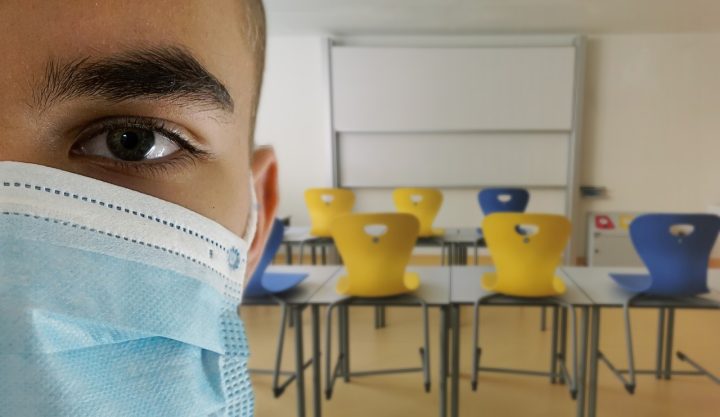
Can we still learn something from the COVID-19 pandemic? This is perhaps the question that many people are still asking three years since the COVID-19 pandemic began. The COVID-19 pandemic wasn’t the first pandemic nor the last one to impact our world and it is only reasonable to anticipate a future pandemic which could again affect our universities and lives.
When the pandemic started and we were all working from home, trying to make sure that we support as best as possible our students and their wellbeing but also ourselves we started planning a research project. We were very worried about the measures that were set nationally and internationally and how they may impact our students. So our research project EqualISM: International students in times of crisis (2020-2023) was born in spring 2020. Our overall aim was to examine the experiences of international students in Finnish universities during the COVID-19 pandemic. Therefore, we collected data with an online survey and longitudinal interviews to investigate students’ everyday experiences and how the pandemic had influenced their studies, social life, financial situation and work.
Recently our peer-reviewed article was published in the Kasvatus-journal/The Finnish Journal of Education (Jokila, Filippou & Jolkkonen, 2023). In this article we analysed the changes in the everyday lives of international students (opiskeluarki) at the very beginning of the pandemic. Our data consisted of 33 interviews with international degree students, and we were specifically interested to investigate how the students’ experiences were (re)-structured after the closure of the university facilities.
We found that the changes in students’ lives were constructed in a variety of spatial, material and temporal dimensions and entanglements. For example, students who did not have access anymore to specific environments, such as laboratories, studios etc. had to explore new ways to develop their skills in their home environment. The teachers’ innovativeness and support were highlighted by the students as the teachers had to come up with alternative ways of organizing their teaching methods and learning activities. Even though in many cases the teaching continued online and learning activities were changed, some practical skills could not be practiced and developed due to the lack of necessary access to spaces and tools.
For some students, the COVID-19 pandemic and the new teaching arrangements that followed brought more freedom but also less structure in their daily lives and studies which was found to be challenging. For example, maintaining a daily routine was a challenge for some students and especially for students with families as their new studying and daily plan was built around their children’s schedules who were now home with them.
The closure of university facilities also led to less social encounters. While some students expressed that the absence of contact and socialization was more efficient, regarding their studies and writing productivity, for many this was a challenge especially because the online environment did not give the same space and freedom to “casually” ask their fellow students for help in the same way as in a face-to-face teaching situation. Moreover, the informal discussions outside of classroom time was valued by students as it provided opportunities for clarifications and exchange of views.
Our research results showed that the changing spatial, material and temporal dimensions reshaped our students’ experiences already at the beginning of the COVID-19 pandemic.
The lack of access to university facilities highlighted not only how studies are structured around spaces but also how social relationships and time are structured based on them. Furthermore, the new teaching arrangements affected our students in multiple ways and showed one way solution does not benefit all. For example, some students faced challenges with independent studying tasks such as, asynchronous self-study assignments.
Undoubtedly, our university community had to face and adapt to rapid changes in spring 2020. Despite these sudden changes, our participants emphasized how teachers were discussing, negotiating and supporting their studies through this difficult time in various ways such as by, informing them about the latest university regulations, exchanging news or discussing due dates for their assignments. Now three years later it still important to reflect on how we can support better our staff members and students in similar situations that may come. As Bryson and Andres (2020) have suggested in crisis situations, it would be useful to discuss teaching arrangements between staff members and students to ensure that all the different actors involved are considered as much as possible.
We would like to thank the Turku University Foundation for funding our research (2021).
Twitter account: @IsmEqual
References
- Bryson, J. R. & Andres, L. 2020. Covid-19 and rapid adoption and improvisation of online teaching: Curating resources for extensive versus intensive online learning experiences. Journal of Geography in Higher Education 44 (4), 608–623. https://doi.org/10.1080/03098 265.2020.1807478
- Jokila, S., Filippou, K., & Jolkkonen, A. (2023). Vastuuta ja vapautta: Kansainvälisten yliopisto-opiskelijoiden uudelleen muotoutuva opiskeluarki covid-19-pandemian alussa. Kasvatus, 54(-), 74–87
The authors Univeristy Lecturer Kalypso Filippou from the Department of Teacher Education and Research Assistant Anna Jolkkonen and Postdoctoral Researcher Suvi Jokila from the Department of Education.